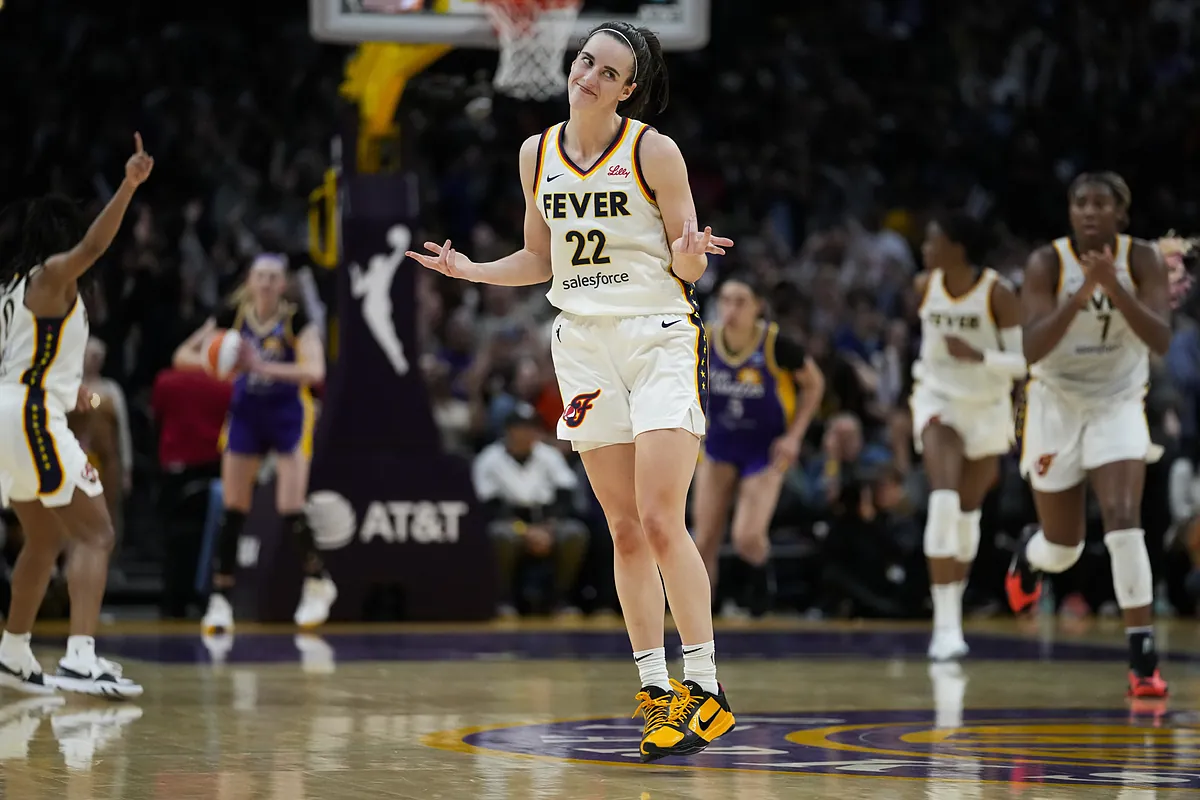Caitlin Clark, the 22-year-old WNBA star for the Indiana Fever, has become a central figure in discussions about women’s sports endorsements. In April 2024, she signed an eight-year, $28 million deal with Nike, marking one of the most lucrative contracts for a female athlete in basketball history. This partnership has sparked mixed reactions and comparisons to basketball legends like Michael Jordan.
The Nike Deal: A Landmark in Women’s Sports
Clark’s agreement with Nike includes a signature shoe and logo, a distinction previously reserved for male athletes such as LeBron James and Kevin Durant. This move signifies Nike’s commitment to elevating women’s basketball and acknowledges Clark’s significant impact on the sport. The deal’s terms reflect Clark’s marketability and the growing interest in women’s sports.
Mixed Reactions and Comparisons to Michael Jordan
While many celebrate Clark’s achievements, some critics argue that the deal’s terms do not fully reflect her market value. Former Nike executive Sonny Vaccaro suggested that Clark’s representatives missed an opportunity to secure a share of product sales, similar to Michael Jordan’s groundbreaking agreement with Nike. Jordan’s deal, which included a percentage of sales from his Air Jordan line, revolutionized athlete endorsements and set a precedent for future contracts.
Comparisons between Clark and Jordan have emerged, with ESPN broadcaster Mike Breen referring to her as the “Michael Jordan of the WNBA.” This comparison underscores Clark’s transformative effect on the league, drawing unprecedented viewership and attendance. Her rookie season saw the highest-ever league viewership, with one million viewers tuning in, and her local TV ratings surpassing those of the NBA’s Indiana Pacers.
The Absence of a Signature Shoe
Despite the substantial contract, Nike has yet to release a signature shoe for Clark, a move that has drawn criticism. Analysts view this delay as a missed marketing opportunity, especially given Clark’s popularity and the success of her college career. The absence of a signature shoe contrasts with the swift releases for other athletes, raising questions about Nike’s commitment to fully capitalizing on Clark’s marketability.
Cultural Impact and Branding
Nike’s Super Bowl 2025 commercial, featuring Clark alongside other female athletes, aimed to address criticisms and double standards faced by women in sports. The ad encourages women to “So win,” highlighting the importance of visibility and representation. While the commercial received praise for its empowering message, it also faced criticism. Comedian Bill Maher labeled it a “zombie lie” about the patriarchy, suggesting that such narratives are outdated.
Looking Ahead: Living Up to the Hype
As Clark continues her professional career, the expectations placed upon her are immense. The comparisons to Michael Jordan and the substantial endorsement deals reflect the high hopes for her impact on and off the court. To meet these expectations, Clark will need to maintain her performance, engage with her growing fan base, and navigate the complexities of high-profile endorsements. Her journey will be closely watched, as she has the potential to redefine the landscape of women’s sports and athlete branding.
